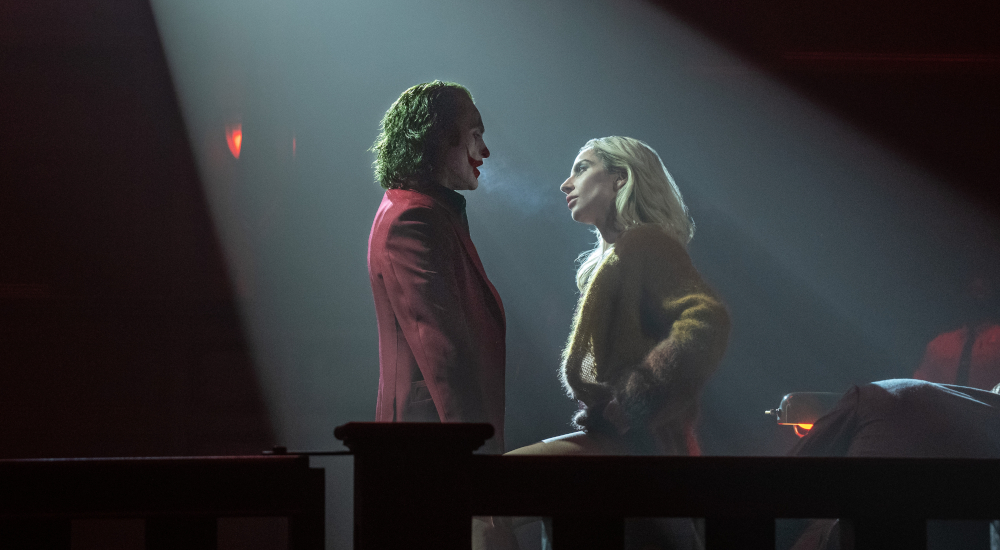"Isn't this more fun than a movie?"
In 2019, Todd Phillips' Joker reconfigured how we regard superhero films, introducing us to a dark, gritty, and painfully realistic origin story of one of Gotham City's most iconic villains. Humanizing the persona we've all grown up detesting, Joaquin Phoenix's performance brought a sense of authenticity and compassion to the titular character. Though that film could have stood on its own, critical and commercial success nearly guaranteed we'd be seeing more of Arthur Fleck. Folie à Deux is his return, and he's brought company this time.
Phillips returns to the chaotic world of Gotham that he so perfectly crafted, capturing the rawness that helped propel Joker five years ago. This return to familiar territory evokes an immediate sense of nostalgia. But the endorphins are short-lived as there's only so much you can cover up with clever lighting and camera angles.
The film opens to find Arthur incarcerated at Arkham for his actions in Joker. We get constant references to the previous film as his lawyer works to emphasize his mental illness, hoping to bar him from the trial she knows he won't survive. Medications keep Arthur calm. But during a visit to another wing, he catches sight of fellow inmate Lee Quintal (Lady Gaga). Immediately, a spark ignites, and the rest, as they say in Hollywood, is history!
While Folie à Deux is, without a doubt, Phoenix's film, Gaga does a tremendous job at stealing the spotlight. Musical notes aside, she captures the viewer's attention instinctively, giving us a fresh unknown on which to focus our attention. It doesn't hurt that she can actually sing, a feat Phoenix struggles with from the start as Phillips attempts to showcase Fleck's fantasy world through a series of musical numbers that, while visually stimulating, rarely venture far from the predictable.
Undoubtedly, the struggles that exist within this film are palpable. While the original opened the door to a plethora of new elements rarely seen within the superhero space, Phillips struggles to reignite that sense of uniqueness. Instead, we receive a paint-by-numbers approach to a character who is unquestionably suffering from a mental disorder without the privilege of locating any help.
That may be the point. The film may be a broad look at the failures within the public health sector. Maybe it's analyzing the lack of seriousness trauma and abuse are given within the context of the judicial system. Regardless, the painting is messy. Once distinct and clear, the picture has become chaotic and sloppy, the colors fusing to form a drab, somber image that refuses to venture below the surface.
Granted, Phillips does, at times, provide moments of pure genius. And he systematically returns to his 2019 hit on more than one occasion, reminding us of how good things once were. Though Folie à Deux isn't necessarily a bad film, it's far from good, certainly hindered by the expectations surrounding it.
The film is (supposedly) a musical, highlighted by one of the best vocalists of our generation. The opportunity was there for it to be a marquee moment. Instead, what was once a strong superhero origin story is now a placid, uneventful character study. The musical aspect, initially a memorable angle that triggered curiosity, is misguided, distracting from the story as we must labor to understand the character arc on display.
Outside of the face painting, Folie à Deux is, truthfully, not a superhero film. It's also not a musical. Or a thriller. Or even a mystery. In most parts, it's an (expensive) indie drama. One that underuses its stars as it succumbs to its own self-indulgent needs.

